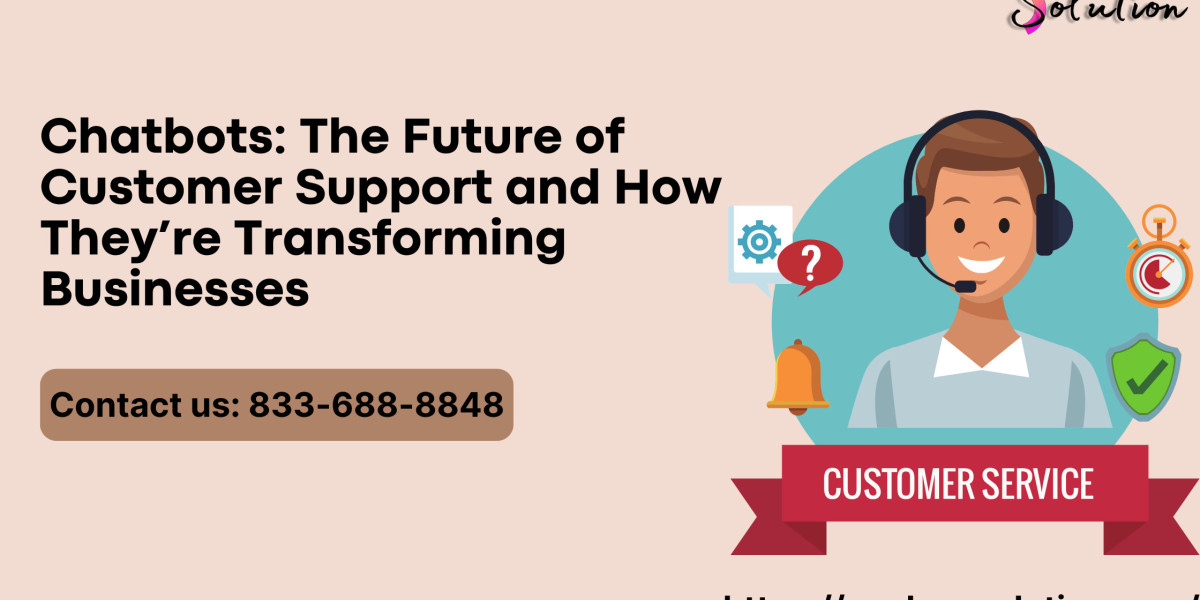In the ever-changing digital landscape, The Future of Customer Support As technology continues to redefine communication, businesses are faced with a challenge: How do we balance automation with authentic, human-centric service? The future of customer support lies in striking this balance—where AI-powered chatbots handle the routine, and human agents deliver empathy and nuance.
The Shift from Reactive to Proactive Support
Traditionally, customer support was reactive—customers reached out after encountering a problem. Today, businesses are embracing proactive support models:
AI and analytics predict issues before customers experience them.
Proactive messaging on websites, apps, and emails offers help at the right moment.
Customer journey mapping helps brands anticipate needs and personalize service.
This shift enables companies to prevent frustration before it begins, creating seamless and satisfying user experiences.
Chatbots: The First Line of Modern Support
Chatbots have become a vital component of modern customer service. Deployed on websites, apps, and social media, they offer immediate, around-the-clock assistance.
Key Benefits of Chatbots:
Instant response times, reducing wait frustration.
Scalability, handling thousands of queries simultaneously.
Cost-efficiency, minimizing the need for large support teams.
Data collection, feeding insights back into business decisions.
However, while chatbots are fast and efficient, they are not always equipped to handle complex emotional or technical issues—this is where human agents still shine.
The Irreplaceable Power of Human Touch
In the age of AI, human connection is more valuable than ever. Customers still crave genuine empathy, understanding, and nuanced conversation, especially when dealing with high-stress or emotionally sensitive issues.
When Human Support Matters Most:
Escalated issues that require discretion or critical thinking.
Emotional conversations that demand empathy and reassurance.
Technical problems needing expertise beyond scripted responses.
Human agents offer a personalized experience that builds trust, loyalty, and emotional connection—things that machines can't replicate.
The Hybrid Model: Best of Both Worlds
The future lies in a hybrid support model that combines the speed and efficiency of AI with the emotional intelligence of humans. This model allows businesses to:
Automate repetitive tasks (order tracking, password resets).
Route complex inquiries to skilled agents.
Use AI to assist agents with suggestions and insights during live interactions.
By strategically integrating automation and human support, brands can maximize efficiency without compromising quality.
AI-Powered Tools Enhancing Human Support
Artificial Intelligence doesn’t replace agents—it empowers them:
Real-time suggestions based on customer intent and history.
Sentiment analysis helps agents adjust tone and urgency.
Knowledge base integration delivers quick access to answers.
With these tools, agents can focus less on process and more on connection, making interactions faster, smarter, and more human.
Personalization at Scale
Customers expect support that understands their unique situation. With AI and CRM systems working in tandem, businesses can offer personalized experiences at scale:
Recognize returning customers and their preferences.
Tailor solutions based on past purchases or interactions.
Deliver relevant recommendations and follow-ups automatically.
This level of personalization drives satisfaction, loyalty, and higher lifetime value.
Training the Future Support Workforce
To meet evolving expectations, support teams need more than technical knowledge. They require:
Emotional intelligence to handle sensitive interactions with care.
Digital fluency across multiple platforms and tools.
Continuous training on both soft skills and emerging technologies.
Investing in agent development ensures that human support remains a brand’s greatest asset.
Channel Diversity and Omnichannel Integration
Support is no longer limited to phones and emails. The modern customer expects help across:
Live chat
Social media
Messaging apps (WhatsApp, Messenger, etc.)
Self-service portals
Voice assistants and smart devices
With omnichannel integration, businesses can unify these touchpoints into a single, seamless experience—where conversations flow across platforms without losing context.
Trust, Transparency, and the Human Element
In an age of automation, transparency and trust are the new currency. Brands must:
Let customers know when they’re speaking to a bot.
Make it easy to reach a human when needed.
Ensure that automation enhances—not replaces—human connection.
By doing so, businesses show that they value efficiency without sacrificing empathy.
Looking Ahead: The Evolution Continues
As we move forward, the evolution of customer support will be driven by:
Voice-based AI assistants becoming more conversational.
Augmented reality support for real-time, visual troubleshooting.
Hyper-personalized service powered by AI and data analytics.
Sustainability in support operations, focusing on energy efficiency and ethical tech use.
Read Also:- The Power of Customer Reviews
The brands that lead the way will be those that put the customer first, balancing innovation with authenticity.








